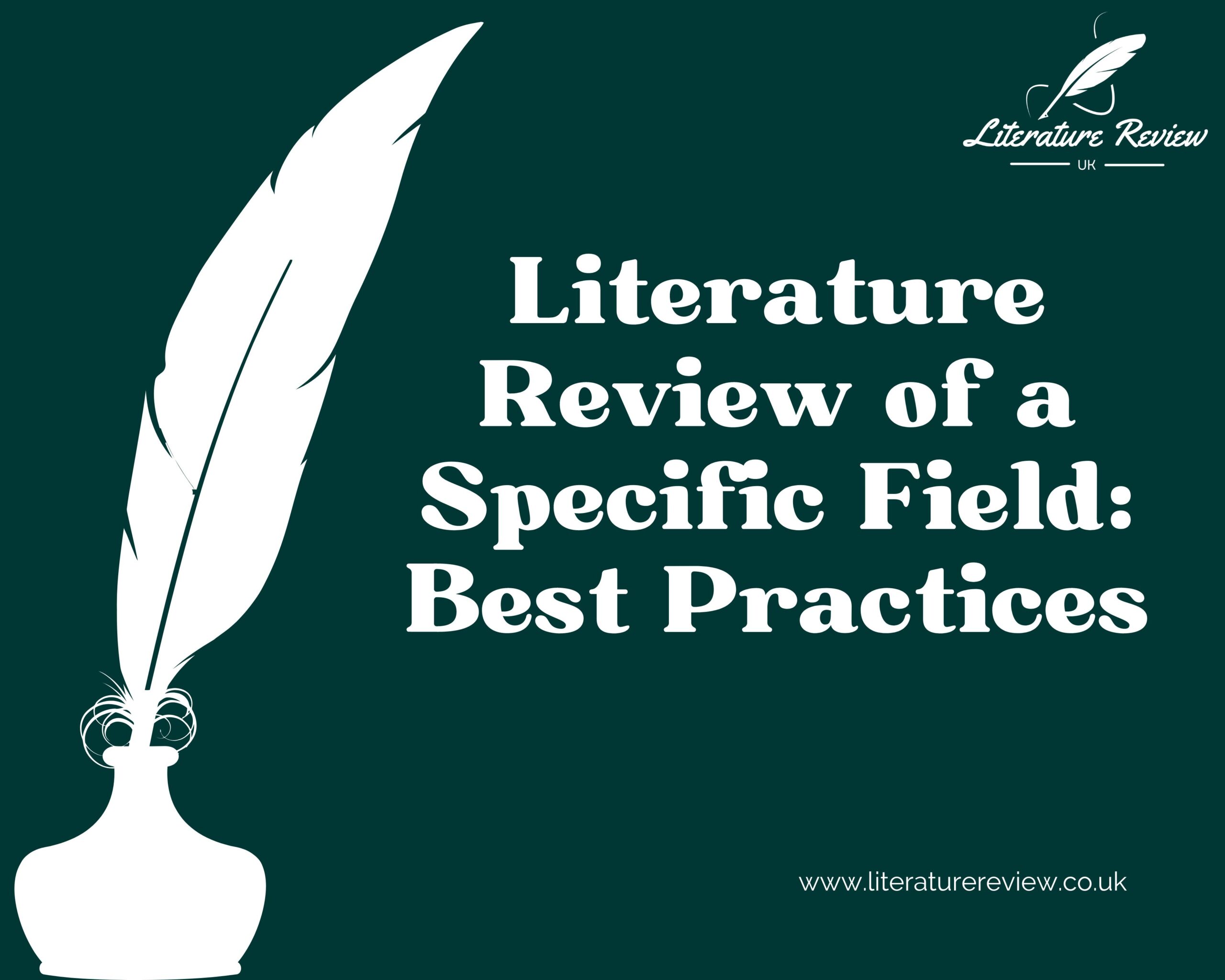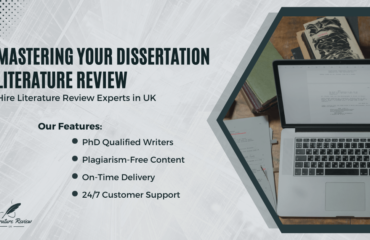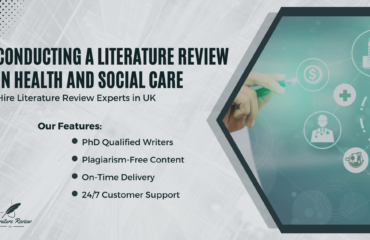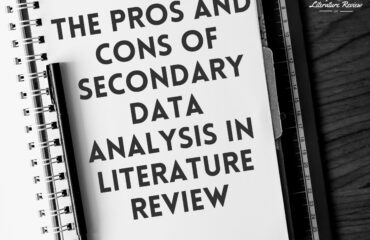
Literature reviews are an essential part of the research process, whether you’re a student or a professional, conducting a literature review can help you gain a comprehensive understanding of the current state of knowledge in your field and identify gaps or areas for further research. But what makes a literature review truly effective? How do you ensure that you’re not just summarising existing research, but also synthesising and analysing it in a way that provides meaningful insights? In this blog, we’ll explore the key elements of a high-quality literature review, from identifying relevant sources to the selection criteria and critically evaluating the literature. So if you’re looking to conduct a literature review in your area of expertise, read on for some tips and strategies to help you get started.
Identifying Relevant Literature Sources
All academic research requires a comprehensive review of relevant and appropriate literature. Before beginning the process of conducting and writing your literature review it is important that you ensure that you have systematically identified various sources of relevant literature and in doing so, maintain sufficiently tight control over the boundaries of your search. Moreover, it is also vital that you have an efficient system for managing, retrieving and referencing the literature that you plan to utilise in your literature review.
Each stage of the initial literature search is laid out below:
Identifying Search Sources
- Databases
- Search citations (bibliographies of relevant acritical
- Review the table of contents in relevant articles
- Search the listserv and other related mailing list archives
- Asking tutors and colleagues for suggestions
- Search through popular sources such as magazines and newspapers to see if they have cited relevant sources
- Using a search engine to search random keywords related to the field of your study to see whether any more results are retrieved
Limiting search parameters
- Type of paper (such as an essay, an opinion piece, or an empirical research study) and being clear about the rationale for selection criteria
- Publication outlet (such as a magazine, peer-reviewed journal, or “grey literature”—unpublished works like dissertations and conference papers)
- Publication date (include only the more recent or relevant work)
Developing search strings
- Create a brief, general research question, and then come up with a list of topics that are related to it.
- Use a thesaurus to find synonyms for the database program’s “descriptors,” then enter these as “key terms” rather than descriptors to allow the search to be more inclusive.
- To broaden or limit a search, use the connectors (and, or, not) or parentheses.
Managing your search
- Use citation management software, for example, RefWork, End Note
- Hand management, such as a box file or a removable disc on a computer
Selection Criteria for Including Studies in the Review
Before you start the process of selecting articles for your literature review based on your research question, think about the selection criteria you will use for it. These criteria are commonly known as inclusion criteria and exclusion criteria. Be aware that if you don’t use these with care, you may introduce bias into the final review.
We will use health sciences and medicine to explain the inclusion and exclusion criteria.
Inclusion Criteria
The elements of a study that must be present in order for it to be considered for inclusion in a literature review are known as inclusion criteria.
Studies to be considered for inclusion had to meet certain criteria, such as comparing specific treatments, being experimental, and being published within the previous five years.
Exclusion Criteria
Exclusion criteria are elements of a study that restrict it from being included in a literature review. Exclusion criteria involve the following:
- A study with an observational research methodology
- A study that was carried out with a qualitative approach
- A report that was released more than five years ago
- A study that was written and published in a language other than English
Data Extraction and Synthesis Methods
Literature review is a vital part of any research study, the process of data extraction and synthesis plays a crucial role in it. As a researcher, one needs to filter through an extensive pool of literature, extract useful and relevant information and synthesise it to form a coherent whole.
One of the most popular methods for data extraction in literature review is the PRISMA (Preferred Reporting Items for Systematic Reviews and Meta-Analyses) approach. It involves four main steps- identification, screening, eligibility, and inclusion. By following this method, one can ensure that they are extracting data from reliable sources that meet strict inclusion criteria. This method is not only efficient but also reduces the chances of bias in the extracted data.
After extracting relevant data, the next step is to synthesise it into a meaningful whole. There are several methods for synthesising data in literature review, such as thematic analysis, content analysis, and meta-synthesis. The thematic analysis involves identifying recurring themes or patterns in the extracted data, while content analysis focuses on categorising the data into different groups based on their content. On the other hand, meta-synthesis involves combining different studies to form a broader understanding of the topic at hand.
Critical Analysis and Evaluation of the Literature
Once you have carried out your literature search, you need to engage with the literature you have found. This means you need to conduct a critical analysis and evaluate and draw conclusions from it.
Make an effort to own the literature review. Keep in mind the purposes of the review, which include presenting background information on the topic you are investigating and identifying a gap in the existing literature on this topic. therefore, the review will include:
- Identify the key themes relevant to your subject matter
- Determine the most logical and effective sequence for your themes, then arrange them in that order.
- Link the sources back to the research question in your research project
- Draw conclusions on the existing literature
- Identify research gaps in the literature
These were some of the key elements of a high-quality literature review. We hope this will help you in your own academic endeavour.




